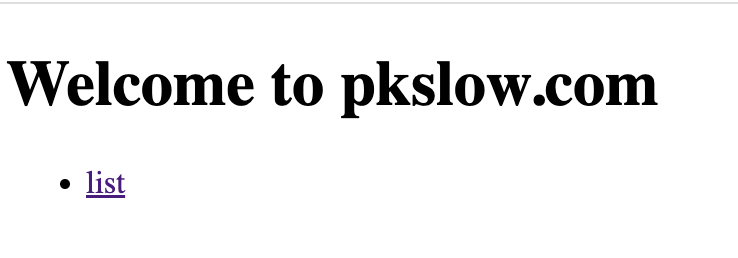Python Template Engine Jinja2 and Integrate with Flask
Jinja Example
Jinja is quite easy to use. Let me give an example to render markdown file.
Template file hello.md.jinja2:
# Hello, {{name}}
Welcome to {{website}}
# The skills
{% for i in skills %}{{i}} {% endfor %}
In python code, just read the template and render with the parameters:
from jinja2 import Template
import pathlib
def render(name, website):
current_path = pathlib.Path(__file__).parent.parent.resolve().__str__()
print(current_path)
file = open(current_path + '/templates/hello.md.jinja2', 'r')
content = file.read()
file.close()
template = Template(content)
rendered_md = template.render(name=name, website=website, skills=['Java', 'Python', 'Docker', 'Kubernetes'])
print(rendered_md)
output = open(current_path + '/output/hello.' + website + '.md', 'w')
output.write(rendered_md)
output.close()
return rendered_md
if __name__ == '__main__':
render('Larry', 'www.pkslow.com')
render('Deng', 'www.google.com')
Create Template with template content:
template = Template(content)
Render with parameters:
rendered_md = template.render(name=name, website=website, skills=['Java', 'Python', 'Docker', 'Kubernetes'])
The result:
# Hello, Larry
Welcome to www.pkslow.com
# The skills
Java Python Docker Kubernetes
All the code can check on pkslow-samples/python/jinja-example
Integration with Flask
Flask is a lightweight WSGI framework, we can use Flask to build web application.
Python code to render the HTML content and return:
from flask import Flask, render_template
app = Flask(__name__)
@app.route("/")
def home():
return render_template("index.html", title='main page')
@app.route("/list")
def default():
return render_template("list.html", title='Skill List',
skills=['Java', 'Python', 'Docker', 'Kubernetes', "Google Cloud Platform"])
if __name__ == "__main__":
app.run(debug=False)
Template file index.html:
{% extends "layout.html" %}
{% block content %}
<ul>
<li><a href="/list"> list </a></li>
</ul>
{% endblock %}
Template file list.html:
{% extends "layout.html" %}
{% block content %}
<h2>The skill list</h2>
<ul>
{% for skill in skills%}
<li>{{skill}}</li>
{% endfor %}
</ul>
{% endblock %}
The result for /:

The result for /list:

All the code can check on pkslow-samples/python/jinja-with-flask
References:
